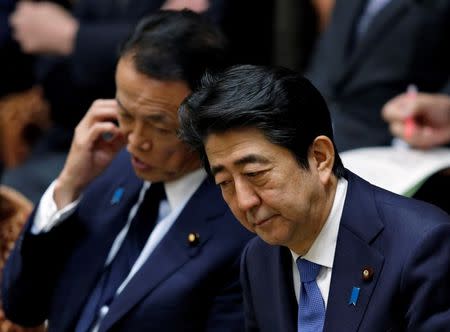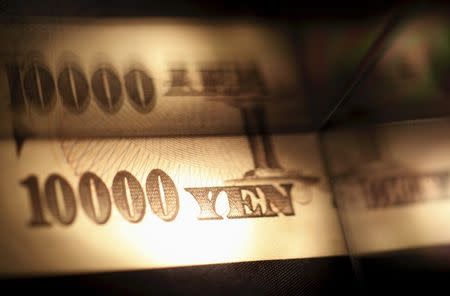Japan lawmakers group urge PM to stick with sales tax hike
By Yoshifumi Takemoto TOKYO (Reuters) - A group of Japan's ruling lawmakers has urged Prime Minister Shinzo Abe to proceed with a planned sales tax hike next April and compile a supplementary budget to mitigate the impact of the tax on the sluggish economy. The proposal marks a reversal in thinking for the policy study group, which is led by a Liberal Democratic Party (LDP) lawmaker Kozo Yamamoto, one of the architects of Abe's economic policy strategy who previously proposed the tax hike be delayed. The lawmakers also proposed that the government should declare it won't raise the tax beyond 10 percent for the moment. They also said the government should compile 10 trillion yen (62 billion pounds) of stimulus measures to improve output gap for this fiscal year and set up a 5-10 trillion yen fund in response to damage caused by earthquakes in the southern island. This would be in addition to this year's 778 billion yen ($7 billion) supplementary budget, aimed solely at reconstruction in the earthquake-hit south. The government needs to allocate 10 trillion yen in the regular budget for next fiscal year and 7 trillion yen in fiscal 2018 to help consumer spending and for public work projects, the statement said. Taking an advantage of the Bank of Japan's negative interest rates, the government should issue government bonds to fund the stimulus measures, it said. "We propose financial authorities take responsibility to make the economy uptrend by fiscal spending equivalent with delaying the tax hike," said the statement. The government plans to raise the levy to 10 percent from 8 percent next spring unless there is a financial crisis on the scale of the Lehman Brothers collapse or a major natural disaster. Abe has said he will make an appropriate decision on the sales tax increase, taking into account opinions from experts on the economy. But there is growing speculation that Abe will postpone it again. He has already delayed it once after an increase to 8 percent from 5 percent in April 2014 hurt consumption and knocked the economy into recession. U.S. Nobel laureate and economist Joseph Stiglitz and economist Paul Krugman have both advised Abe to delay the tax increase and focus on fiscal efforts to boost a recovery. But OECD Secretary-General Angel Gurria has said Japan should stick with its the tax plan and raise it further to pare public debt. Japan narrowly dodged a recession in the first quarter, but the rebound has not dispelled analyst concerns about a contraction this quarter. (Reporting by Yoshifumi Takemoto, writing by Kaori Kaneko; Editing by Sam Holmes)



